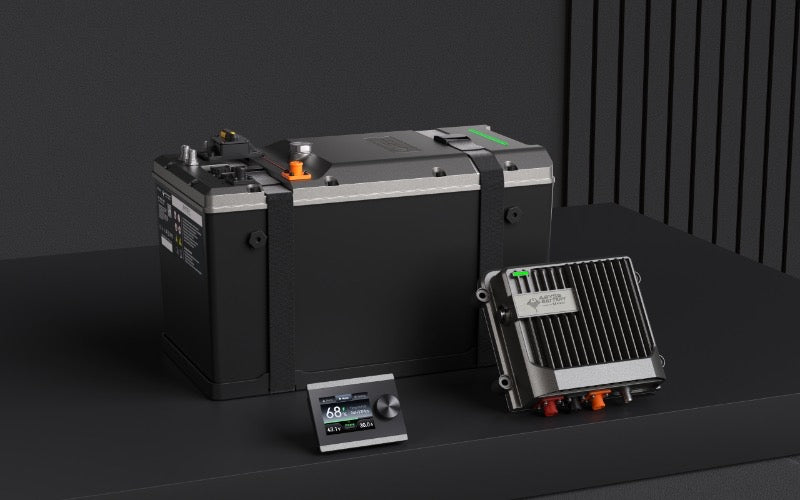How To Winterize Your Boat So It's Ready in the Spring

Owning a boat comes with many responsibilities, including year-round maintenance. Winterizing your boat is an essential part of caring for it, as this process protects your investment when not in use. Neglecting to winterize your boat can result in damage and costly repairs. All boat owners should understand the steps in winterizing their boat so it's ready in the spring.
What Is Winterization?
Winterizing your boat isn't just about maintaining its appearance. It's also about protecting the boat's motor, hull, electrical systems, and mechanical components from winter-related damage. In doing so, you keep your watercraft in good condition for the upcoming spring season.
Winter weather can be exceptionally harsh on unprotected boats. For example, freezing temperatures can cause water within the motor and mechanical systems to freeze and expand, leading to cracks and severe damage. Moisture can lead to corrosion and the growth of mildew and mold. Sitting fuel can degrade and harm the boat’s fuel system. Winterizing your boat protects your investment and guarantees a hassle-free start to your boating season next year.
Clean Your Boat Thoroughly
Before you start winterizing your vessel, it's important to give your boat a thorough cleaning. This includes removing water stains, sand, grime, and algae from the exterior and interior. Be sure to clean out all storage compartments in order to prevent mold or mildew growth during the winter months. Cleaning your boat before storing it is essential for keeping it looking and operating like new once you take it out of storage.
Change the Oil
Change the motor oil before storing your boat for the winter. Old oil can become contaminated with water and other debris and damage the motor over time. We recommend using a marine-specific oil for this process, as it will provide protection against corrosion. Check with the motor's manufacturer to ensure you're using an oil with the correct viscosity.
Stabilize the Fuel
Adding a fuel stabilizer to your boat's fuel tank before storage is crucial in preventing potential damage. As fuel can break down over time, it is vital to use a stabilizer to keep it fresh and prevent any build-up or clogging in the engine. This will ensure your engine starts up without any issues come spring.
Drain and Flush the Cooling System
Drain and flush the boat's cooling system with fresh water before storing it for the winter. This step will remove built-up debris or contaminants and prevent the motor from sustaining damage when not in use. Any remaining water in the engine can freeze and cause catastrophic damage, so be sure to dry everything thoroughly before storing your watercraft.
Check and Charge the Battery
Remember to check and charge your battery before storing your boat. Unused marine batteries can lose their charge over time; keep them charged so that they will start up without any problems in the spring. Setting the battery aside in a cool, dry location is essential for maximizing its lifespan. Inspect your starter and trolling motor lithium batteries to ensure they're in good condition.
Protect Your Boat From Moisture
Moisture is a big threat to boats out of the water, especially during the winter. Standing water can lead to mold and mildew growth. If water gets into any crevices in your boat, it may cause damage once it freezes and expands. You should seal all openings and vents on your boat to prevent these problems. You can also use a moisture absorber or dehumidifier in storage areas to keep your boat dry.
Cover Your Boat
Investing in a good-quality, moisture-resistant boat cover will protect it from harsh winter weather. Ensure the cover fits well. If you’re using outdoor storage this winter, fasten the cover to prevent snow from entering your boat’s interior. A good boat cover should fit snugly yet be breathable.
Remove Electronics
If your boat has any electronics, we recommend removing them before storing your watercraft for the winter. This will prevent damage from freezing temperatures or moisture. Store the devices in a dry place, and label them for easy reinstallation in the spring. This is an opportune time to check for electrical issues, like frayed wires, and fix them.
Inflate and Secure the Trailer Tires
Before hauling your boat out of the water, check the trailer’s tire pressure and inflate the tires if necessary. This will prevent flat spots from forming in the tires over the winter. You should replace the tires if the treads are worn. Once your boat and trailer are in storage, secure the trailer’s tires with chocks or blocks to prevent movement.
Additional Guidelines
Now that you understand the main facets of boat winterization, we’ll share some additional measures that can enhance the protection of your vessel during the cold months.
Remove Safety Gear
Store life jackets, flares, and other valuable safety items in a dry place during the winter.
Top Off the Fuel Tank
A full fuel tank reduces the chances of condensation, which can lead to water in your fuel.
Use a Boat Propeller Cover
Protect your propeller from damage with a cover.
Protect Your Boat From Theft
Boats in outdoor storage are at high risk of theft. Protect your boat and its contents by installing alarms and locks.
Consult a Professional
If you're unsure about any aspect of boat winterization, don't hesitate to consult a watercraft storage professional. They can ensure your boat is ready for winter storage and ready to go when spring arrives.
To ensure you don't forget any of these steps, create a checklist you can refer to each year. It will help you stay organized and complete all necessary tasks.
Be Ready To Hit the Water Next Season
Winterizing your boat so it's ready for spring is crucial for the maintenance and protection of your investment. By following these steps, your boat will be ready to rip when you take it out of storage. Remember to refer to your boat owner’s manual for specific winterizing instructions. Now, you can enjoy the winter season knowing your boat is well-protected.





Leave a comment